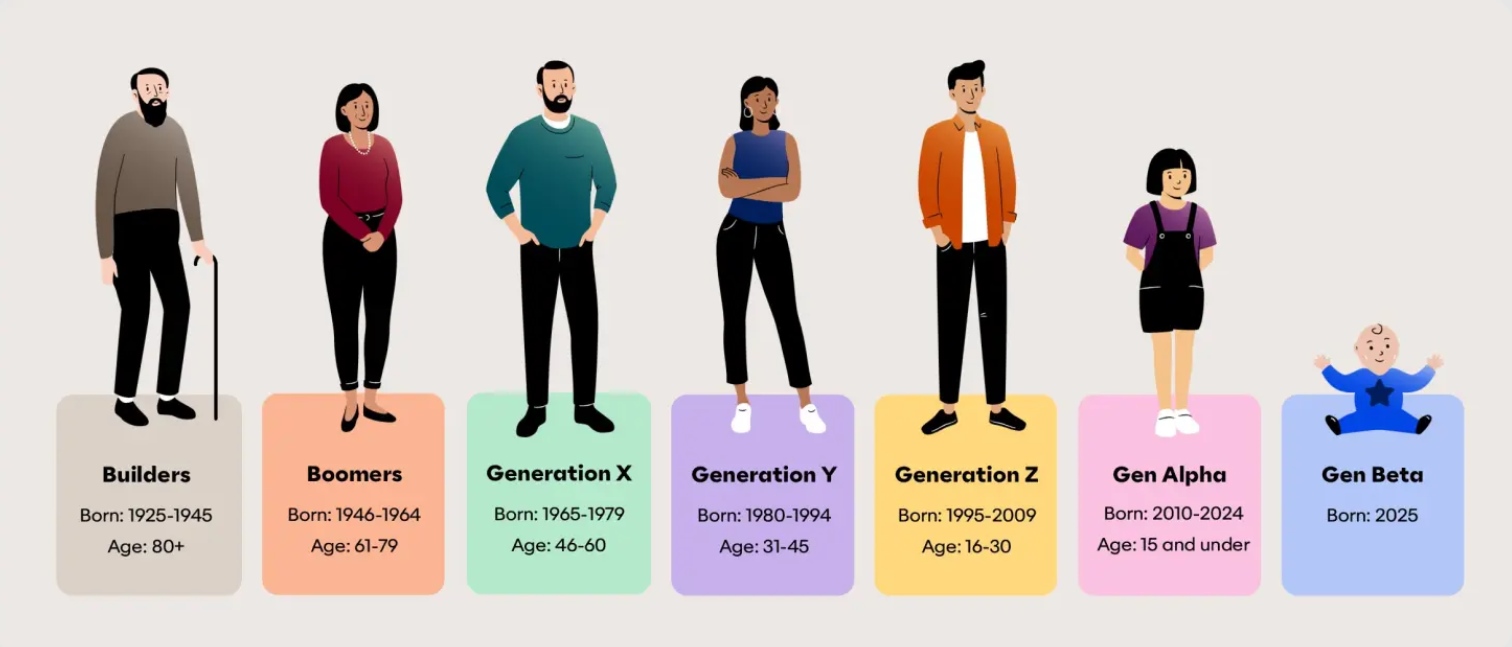Everything you need to know about Generation Beta
As we approach the dawn of 2025, a new generation is on the horizon: Generation Beta.
This group, composed of children born from Jan. 1, 2025, to 2039, will grow up in a world different from the one their predecessors—Millennials, Generation Z, and Generation Alpha—experienced.
Shaped by rapid technological advances—particularly with artificial intelligence embedded in daily life—environmental challenges, and evolving social norms, Generation Beta will inherit a world full of opportunities and challenges.
Who is Generation Beta?
Generation Beta follows Generation Alpha who were born between 2010 and 2024.
In a generational analysis by McCrindle, a social research agency that tracks and researches generational trends, Generation Beta will be a technologically integrated generation, covering up 16% of the global population. They will be the children of younger Millennials and older Gen Zs, who are predicted to be curious yet value diversity and embrace change and difference.

Unlike Millennials and Gen Z, who witnessed the rise of the internet, smartphones, and social media, Generation Beta, like Alpha, will grow up with these technologies fully integrated into their lives from birth. This means they will experience a world where the digital and physical realms seamlessly blend together, making the boundaries between the two nearly invisible.
"As Generation Beta arrives, we will watch these technologies and social events closely, to see what will shape this 21st Century generation as they arrive, as they age and as they gain autonomy and influence," it said.
Naming Generation Beta babies
As we approach the start of Generation Beta, one of the most interesting aspects to explore is the evolving landscape of baby names.
Sophie Kihm, editor-in-chief of Nameberry, the world's largest website devoted to baby names, predicted that "cultural identity will be a huge factor " and that parents will "increasingly gravitate" toward names with roots in cultures.
Moreover, hobbies and niche interests such as video games and anime can be considered when naming their generation's beta babies.
Among the names expected to rise in popularity for girls are Scottie, Elowyn, Lenora, Murphy, and Solana, while for boys, it's names like Matheo, Elio, Chosen, and Caspian.
Likewise, the rise of gender-neutral names is also on the horizon.
"Some wish to give their children the freedom to come into their identities without a name adding gendered pressure," said Kihm, adding that there is also a new wave of "girl names for boys," such as traditionally feminine names like June, Willow, Florence, and Hazel are becoming popular for boys.
Trends in parenting styles
The characteristics of Generation Beta have still to be determined, but the impact of their parents' beliefs, behaviors, and attitudes is expected to be significant and transformational.
Based on a nationally representative survey (by gender, age, and state) of 2,004 Australians conducted by McCrindle from May 30 to June 4, 2024, Gen Z parents are exhibiting "a more nuanced approach" to parenting.
This includes adaptability in parenting tools reflecting their unique generational values and experiences.
"Millennial parents lean on their extensive knowledge of child development and technology, encouraging open communication. Meanwhile, we're seeing a cohort of Gen Z parents that prioritize balancing family life and holistic well-being, ensuring their children grow up in a supportive and nurturing environment," said Ashley Fell, the director of advisory at McCrindle.
Likewise, Gen Z parents will foster individuality and emotional intelligence. Hence, they prioritize open communication, empathy, and self-expression and encourage their children to explore their emotions freely.
For Generation Beta, technology will be an integral part of daily life from the moment they are born. From smart home devices to digital assistants, Beta children will grow up surrounded by technology designed to make their lives easier and more connected. As such, one of the biggest parenting challenges will be balancing screen time and traditional play.
While parents will likely embrace digital learning tools, AI-powered educational apps, and online platforms, there will also be an increased focus on managing screen time. Parents of Generation Beta will be more mindful of how technology shapes their children's development, and they will use these tools to enhance education, creativity, and communication while also ensuring that children don't become overly reliant on screens.
"They're more likely to strongly agree that limiting their child's screen time is a high priority for them (36% of Gen Z parents, compared to 30% of older Millennial parents). As the most technologically savvy generation thus far, Gen Z parents see the benefits of technology and screen time, but they also see the downsides and are pushing back on usage and the age at which their children can access and engage with it," Fell said.


